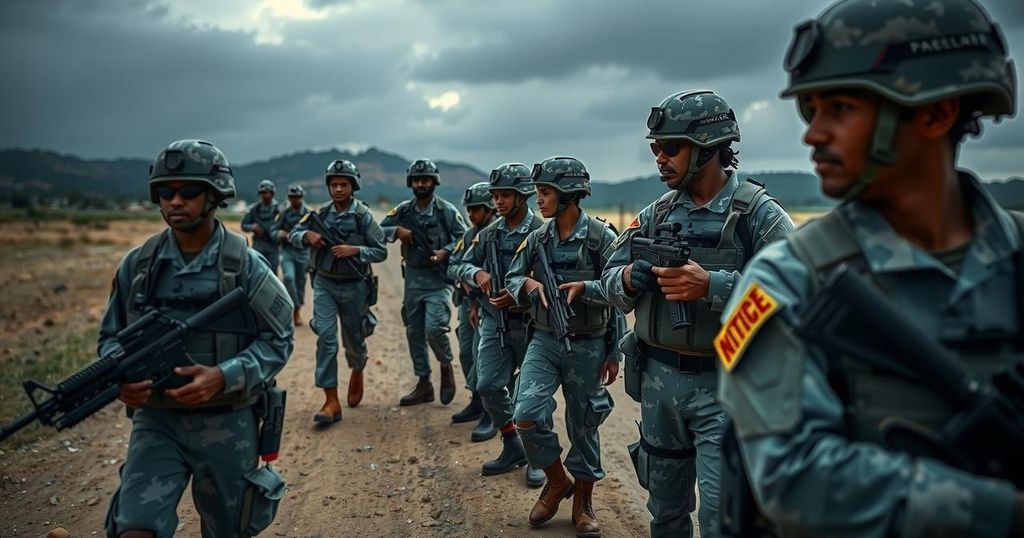Tragic Shooting by Mexico’s National Guard Raises Concerns Over Migrant Safety

Mexico’s National Guard fatally shot two Colombian migrants and wounded four others during an encounter on a smuggling route near the U.S. border. The incident raises concerns about the military’s increasing role in policing migrants as previous confrontations also resulted in fatalities. Colombia’s government identified the victims but discrepancies arose in casualty counts, reflecting ongoing issues regarding the treatment of migrants in Mexico.
Mexico’s National Guard has come under scrutiny following an incident on a migrant smuggling route near the U.S. border, which resulted in the deaths of two Colombian nationals and injuries to at least four others. The shooting occurred on a dirt road close to Tecate, an area known for its illegal migration activities. While Colombia’s foreign ministry has labeled the victims as migrants caught in the crossfire, the Defense Department has not confirmed their status. This incident marks a troubling pattern, as it follows a similar shooting that occurred just a month earlier, suggesting a concerning trend in military engagements with migrants. President Claudia Sheinbaum’s administration faces rising criticism as these confrontations raise serious questions regarding the militarization of law enforcement and the consequences for vulnerable populations seeking refuge. Official reports detail that a National Guard patrol found itself under fire while pursuing two suspicious trucks. One truck evaded capture, while the other was targeted by the guards, resulting in the fatal shootings of a 20-year-old man and a 37-year-old woman. Colombia has reported five injuries, contrasting the originally stated figure of four from the Defense Department. Additionally, law enforcement located firearms at the scene, although the implications of these findings remain contested. The wounded are currently under medical assessment, and their conditions are awaited. Critics of the military’s role in law enforcement have expressed deep concern over the lack of accountability and transparency in such confrontations, particularly given the history of disproportionate outcomes favoring military narratives. This incident reflects broader issues regarding Mexico’s approach to immigration and crime. Under former President Andrés Manuel López Obrador, military forces gained unprecedented authority in civilian law enforcement roles, which has led to increasing tensions and fatalities involving migrants. This episode underscores the urgent need for a re-evaluation of military engagement in policing and the dire consequences it can inflict on marginalized communities seeking safety and stability.
The ongoing crisis regarding migrant treatment in Mexico has drawn international attention, especially regarding the military’s involvement in policing. Traditionally, Mexican law enforcement has been managed by civilian authorities; however, under the López Obrador administration, there has been a strategic shift towards a militarized response to crime and immigration. Such policies have resulted in tragic outcomes, as exemplified in the recent shooting incidents involving migrants. The complexities surrounding cartel involvement in refugee trafficking further complicate the realities faced by those fleeing violence in their home countries. The recent incident near Tecate highlights the hazardous crossroads of migration and militarization in Mexico, raising essential questions about accountability and the protection of vulnerable populations.
The deadly incident involving Mexico’s National Guard reflects critical challenges in the intersection of military action and migrant protection. The fatalities highlight ongoing concerns over how migration is policed in Mexico and the troubling potential for violence against vulnerable groups. As the National Guard’s engagement in civilian affairs continues, scrutiny regarding their training, accountability, and the handling of migrant populations remains imperative. These events serve as a call to action for better policies and practices that prioritize the safety and dignity of those seeking refuge.
Original Source: www.usnews.com







